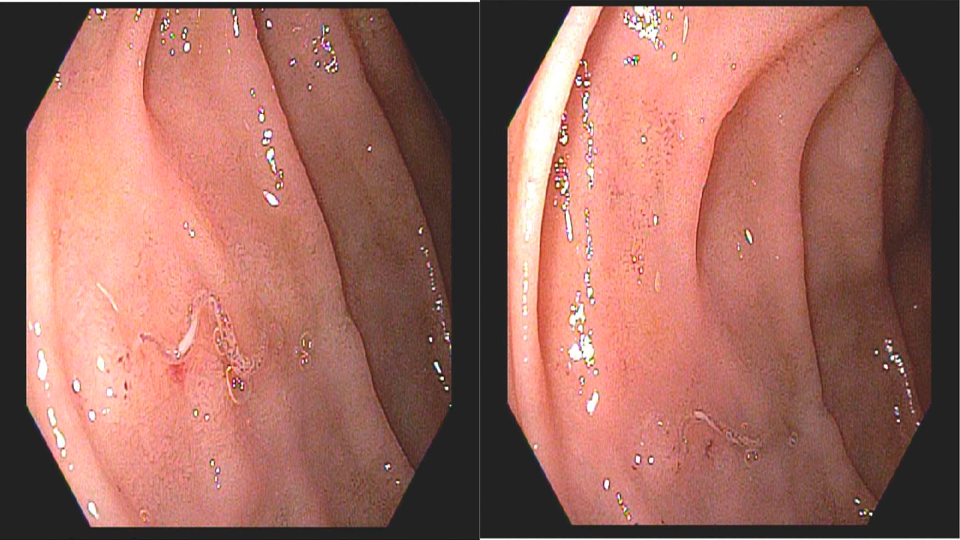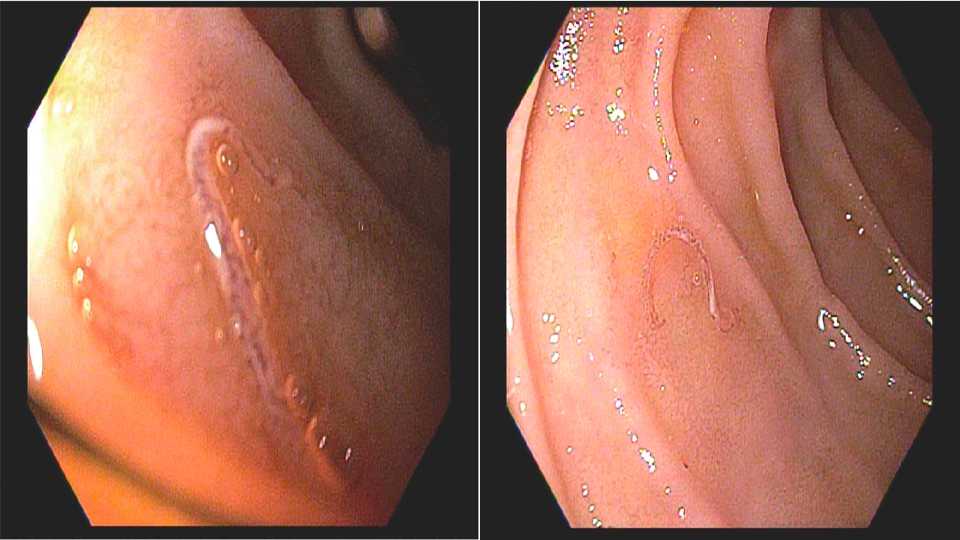Tuesday Poster Session
Category: Small Intestine
P6265 - Hooked on Worms: Diving into Human Helminth Therapy
Tuesday, October 28, 2025
10:30 AM - 4:00 PM PDT
Location: Exhibit Hall
- AA
Alyson C. Auriemma, MD (she/her/hers)
Wright State University Boonshoft School of Medicine
Dayton, OH
Presenting Author(s)
Alyson Auriemma, MD1, Sean-Patrick A.. Prince, MBBS, MPH2, Ammar Ahmad, MD3, Drew Triplett, DO1
1Wright State University Boonshoft School of Medicine, Dayton, OH; 2Wright State University Boonshoft School of Medicine, Cincinnati, OH; 3Wright State University Boonshoft School of Medicine, Tipp City, OH
Introduction: Human helminth therapy is an emerging area of research exploring the use of parasites, particularly hookworms, in the self-management of immunologic conditions such as inflammatory bowel disease (IBD). The “hygiene hypothesis” proposes that helminths can modulate the host immune system to alter gut microbiota and reduce disease activity. Unlike IBD, there is little scientific research on human helminth therapy for irritable bowel syndrome (IBS). Nevertheless propelled by popular culture, individuals are self-inoculating with hookworms in an attempt to manage IBS symptoms. We present the case of chronic helminthic use for the self-treatment of IBS.
Case Description/
Methods: A 53-year-old female with a past medical history of IBS and migraines presented to the emergency department (ED) due to lightheadedness, palpitations and exertional dyspnea. Laboratory investigations in the ED revealed a hemoglobin level of 5 g/dL, a mean corpuscular volume of 57.6 fL and eosinophilia. Due to her profound microcytic anemia, iron studies were ordered revealing a ferritin level of 2 ng/mL, iron level of 15 mcg/dL, a 3% iron saturation and a total iron binding capacity of 495 mcg/dL. Although the patient denied any episodes of obvious gastrointestinal bleeding, the patient reported a 10-year history of self-inoculation with hookworms for management of her IBS and was scheduled for an esophagogastroduodenoscopy (EGD) and colonoscopy.
During the procedure a mature hookworm was identified within the duodenum, with surrounding duodenitis. Despite this finding the patient declined anthelmintic treatment and was discharged home after improvement of her anemia following intravenous iron infusion and blood transfusions.
Discussion: Although several studies have found little evidence supporting the efficacy of helminth inoculation, iron deficiency anemia remains a known sequela of hookworm infection. Unfortunately, as in the case above, patients may be hesitant to disclose or even discontinue self-inoculation due to these purported benefits. Further, they may not accept standard of care therapy. As long as these products remain readily available and without appropriate regulation, patients suffering from chronic diseases remain at risk of these false treatments with real consequences.

Figure: Adult hookworm in duodenum

Figure: Adult hookworm with surrounding erythema
Disclosures:
Alyson Auriemma indicated no relevant financial relationships.
Sean-Patrick Prince indicated no relevant financial relationships.
Ammar Ahmad indicated no relevant financial relationships.
Drew Triplett indicated no relevant financial relationships.
Alyson Auriemma, MD1, Sean-Patrick A.. Prince, MBBS, MPH2, Ammar Ahmad, MD3, Drew Triplett, DO1. P6265 - Hooked on Worms: Diving into Human Helminth Therapy, ACG 2025 Annual Scientific Meeting Abstracts. Phoenix, AZ: American College of Gastroenterology.
1Wright State University Boonshoft School of Medicine, Dayton, OH; 2Wright State University Boonshoft School of Medicine, Cincinnati, OH; 3Wright State University Boonshoft School of Medicine, Tipp City, OH
Introduction: Human helminth therapy is an emerging area of research exploring the use of parasites, particularly hookworms, in the self-management of immunologic conditions such as inflammatory bowel disease (IBD). The “hygiene hypothesis” proposes that helminths can modulate the host immune system to alter gut microbiota and reduce disease activity. Unlike IBD, there is little scientific research on human helminth therapy for irritable bowel syndrome (IBS). Nevertheless propelled by popular culture, individuals are self-inoculating with hookworms in an attempt to manage IBS symptoms. We present the case of chronic helminthic use for the self-treatment of IBS.
Case Description/
Methods: A 53-year-old female with a past medical history of IBS and migraines presented to the emergency department (ED) due to lightheadedness, palpitations and exertional dyspnea. Laboratory investigations in the ED revealed a hemoglobin level of 5 g/dL, a mean corpuscular volume of 57.6 fL and eosinophilia. Due to her profound microcytic anemia, iron studies were ordered revealing a ferritin level of 2 ng/mL, iron level of 15 mcg/dL, a 3% iron saturation and a total iron binding capacity of 495 mcg/dL. Although the patient denied any episodes of obvious gastrointestinal bleeding, the patient reported a 10-year history of self-inoculation with hookworms for management of her IBS and was scheduled for an esophagogastroduodenoscopy (EGD) and colonoscopy.
During the procedure a mature hookworm was identified within the duodenum, with surrounding duodenitis. Despite this finding the patient declined anthelmintic treatment and was discharged home after improvement of her anemia following intravenous iron infusion and blood transfusions.
Discussion: Although several studies have found little evidence supporting the efficacy of helminth inoculation, iron deficiency anemia remains a known sequela of hookworm infection. Unfortunately, as in the case above, patients may be hesitant to disclose or even discontinue self-inoculation due to these purported benefits. Further, they may not accept standard of care therapy. As long as these products remain readily available and without appropriate regulation, patients suffering from chronic diseases remain at risk of these false treatments with real consequences.

Figure: Adult hookworm in duodenum

Figure: Adult hookworm with surrounding erythema
Disclosures:
Alyson Auriemma indicated no relevant financial relationships.
Sean-Patrick Prince indicated no relevant financial relationships.
Ammar Ahmad indicated no relevant financial relationships.
Drew Triplett indicated no relevant financial relationships.
Alyson Auriemma, MD1, Sean-Patrick A.. Prince, MBBS, MPH2, Ammar Ahmad, MD3, Drew Triplett, DO1. P6265 - Hooked on Worms: Diving into Human Helminth Therapy, ACG 2025 Annual Scientific Meeting Abstracts. Phoenix, AZ: American College of Gastroenterology.
